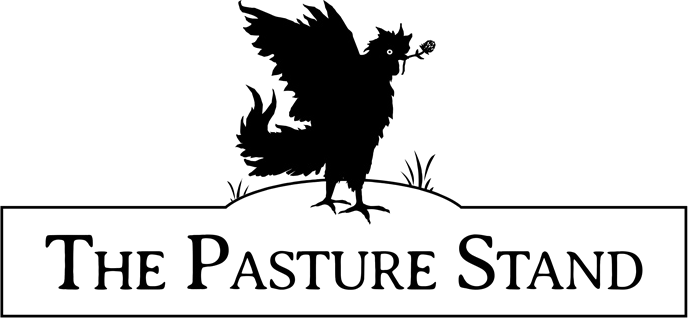How our pigs are raised
Our pigs are a slow-growing, heritage breed called the KuneKune (pronounced “cooney-cooney”).
KuneKunes are different than other pigs because they receive the vast majority of their diet from pasture, while other pig breeds require substantial amounts of grain. The small amounts of grain that our pigs do eat is a supplemental non-GMO ration sourced from a local mill. This feed does not contain any hormones, antibiotics, or other medications.
We frequently rotate our pigs to fresh ground allowing them to do what they do best: mow and fertilize. And since KuneKune’s short upturned snouts are not as adept at rooting, they won’t destroy our summer pastures nor the soil we’re working so hard to build. These features make KuneKune pigs an integral step forward in finding a place for pork in the regenerative agriculture food system.
But, on to the most important question…
How does pasture-raised pork taste?
Since KuneKune’s get the majority of their diet from pasture and live their life outside, their pork has a premium texture and taste. The meat is a deep pink color as opposed to the pale, drab white commonly seen in industrially raised pork. Additionally, while I personally can’t stand to eat the fat from industrially raised meat (I’m the one who always has strips of fat left on their plate after eating), the fat on pasture-raised pork is tender, clean, and tastes incredible. You can’t help but eat the whole thing.
Helpful ordering details
Orders are for half pigs. After placing an order, we’ll give you a call and spend a few minutes filling out a cut-sheet together. A cut sheet defines which cuts and quantities you’d like out of your half-pig. In other words, you can define how many pounds of bacon, sausage, ribs, pork chops, hams, etc. that you’d like. When we bring your pig to the USDA inspected processing facility, we’ll also deliver your cut sheet. The butcher will process the pig to your exact specifications. They also beautifully package, label, and organize everything so when you receive your order, it’s ready to go either directly into your freezer or onto the dinner table.
To place an order we require a $275 deposit. This reserves your half-pig which is expected to go to the butcher at the beginning of September, 2020. The remaining cost is $7.00/lb (of hanging weight**) minus this deposit. If you’d like to order a whole pig, simply up the order quantity to 2.
Note: If our pork seems more expensive, that’s because we’ve already factored in the butchering, packaging, and labeling costs to make payment easier. Quite often you’ll see pasture-raised pig for sale at about $5.50/lb in our area but this doesn’t account for the aforementioned fees (which average about $1.50/lb). The only cost add-on some orders will incur is for curing and smoking (eg. bacon). In this case, the butcher shop charges an additional $1.00/lb for those specific cuts. This amount will be due when you pick-up your order.
** Whole pigs typically have a hanging weight around 160-200 lbs. This ultimately yields roughly 80-100 lbs for a half pig. The final cost for a half pig can be expected to be anywhere from $560-$700, minus the $275 deposit. The deposit splits this up into two, more manageable payments.

